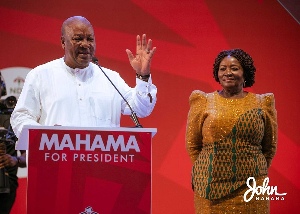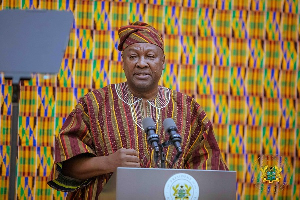The world since December 2019 has been plagued by the deadly novel Coronavirus also known as COVID-19.
According to the Centre for Disease Control and Prevention, the virus, which started in China has since spread across 181 locations/countries ravaging lives and economies.
As at 10: 55 GMT, 3rd April, 2020, data collected by Johns Hopkins University revealed the virus has now infected over 1,000, 000 people and killed more than 50, 000 people globally, it is however estimated that over 200,000 people have also recovered from the infection. Yes, that is how deadly it has been so far.
Following the World Health Organization’s declaration of the virus as a pandemic, it has seen governments, political leaders and other world leaders put stringent measures in place in order to prevent and control the infection of their citizenry. Organizations and philanthropists have also made donations in the form of cash, PPEs and human capital to affected countries to stem the spread, notable is the Jack Ma and Alibaba Foundations.
Whilst governments are expected to take sound and bold decisions like declaring state of emergencies and closing borders to traffic, the onus also lies on subject matter specialists like scientists in the labs, doctors, nurses and other health advocates to spread the precautionary and preventive measures to the benefit of the human race. The role of advocates is so important that they communicate to alert, to educate and also to allay fears.
It is however a fact that having the mastery of subject matter like the COVID-19 is totally different from having the mastery and ability to communicate that effectively taking into consideration the demographics of the people such as age, location, sex, religion, educational level and importantly the culture and tradition of the audience. The deficiency of this calls for the expertise of communications practitioners who will confer with subject matter specialists to produce a sensitization strategy or plan that will encapsulate the various dynamics in society.
From communications practice, research and experience, please find below a compilation of some useful guidelines in your advocacy to control the infection and spread of the deadly COVID-19.
Demographics
Age: It is not for nothing that elderly people have been around, way before younger people. The gap between these two groups is that the elderly have well-developed senses that give them the opportunity to understand and make meaning out of their environment better.
The benefit of hindsight also gives them the experience to juxtapose and compare. Whilst the older people can make meaning out of complex concepts regarding the virus, children can only hope for content that is laced with fun and play.
So targeting children with songs, rhymes and other fun theater material will enhance their understanding of the precautionary measures.
Religion: Religion has moved beyond a set of beliefs to a pursuit of interest that people have committed and devoted themselves to. So, this redefined interest and the institutionalization of religion, has made almost every intervention and initiative of man dependent on religion.
It is therefore prudent for planners and policy makers to incorporate the Church and Mosque in development planning, especially if such a policy is going to directly affect religious practice.
The state’s failure to ensure this, may result in fierce resistance from religious fanatics. The outbreak in Ghana saw the president decisively issuing guidelines that included suspension of various forms of gathering especially one that is going to engage more than 25 people.
The directives were bold as a leader should. How about its operationalization? So it is in reference to this that we witnessed religious leaders addressing their congregations and following to ensure a smooth operationalisation.
It is not for nothing that the Muslim Spiritual Leader, the National Chief Imam, Sheikh Prof. Osman Nuhu Sharubutu spoke to affirm the president’s directive.
Other Islamic scholars have also referenced Prophet Mohammed (SAW’s) admonition to one of his followers who left his camel untied with the hope of trusting in Allah, that he should tie his camel first whilst trusting in Allah, so to Muslims, take precautionary measures whiles trusting in Allah.
Listening to your spiritual leader affirm the position of a secular personality (The President) gives you no reason to doubt. In fact it clears all your doubts and allays your fears. Martin Luther King in the same vein in espousing the fifth commandment of “Thou shall not murder” in his essay on the topic we must not “tempt God”, his catechism instructed that the commandment actually means we must never endanger others through our negligence or recklessness. His essay therefore encouraged believers to obey quarantine orders, fumigate their houses and take precautions to avoid spreading the sickness or disease. To this end, it is imperative for Christian leaders to make congregations understand that the Christian motive for hygiene and sanitation does not arise in self- preservation but in an ethic of service to ourselves and to our neighbours.
Imbibing this in your congregation, will they resist quarantine and congregational prayer suspension orders?
Education level: It would suffice to say that the difference between literates and illiterates is the former’s ability to understand and decipher complex concepts and phenomena. For the latter to understand same, there will be a need for conscious extra efforts in planning advocacy materials.
To beat this, I suggest advocates and other agents skew towards the use of oral methods and the usage of L1 in disseminating COVID-19 preventive and precautionary measures. These can be in the form of arts such as songs, poems, plays on the various electronic media platforms. Most of these can be done taking into cognisance the folklore of a particular group of people; it is the folklore that can enhance a vivid understanding of the phenomenon and it would also enable proper contrast, comparison and references. A proper incorporation of this will reinforce the message.
Gender: Gender studies and its practice have taken center stage. This feat has made it almost indispensable in programme planning and development. The relevance of gender perspectives in programmes planning has become central in communications practice too, likewise health communication. These perspectives are shaped by the people’s knowledge, beliefs and attitudes.
Well-carved messages therefore have the tendency to either reinforce these existing perspectives or topple them over for the establishment of new beliefs, attitudes and norms. But to what extent can the existing or new perspectives support adoption of the COVID-19 precautionary measures? Advocates and agents must incorporate gender-sensitive principles into the planning and development of advocacy materials and content. This should start from equal gender representation in advocacy teams to the use of gender-responsive graphics, avoiding gendered pronouns, using right and equal addresses (Ms. for Mrs.) and the use of professional titles that do not stereotype women.
OTHERS
Medium or Platform: In times of outbreak and crises, the medium or platforms used to disseminate information is as important as the message itself. Of what usefulness will a message be if it cannot target the right people? Using the wrong or inappropriate medium means misdirection of efforts. Whilst most of the preventive measures have been largely on social media, a research conducted by global digital media agency “We are Social and Hootsuite” in 2019 puts the number of Ghanaians who are on social media at 35% of the population. So an overly saturated communication of COVID-19 precautionary measures on social media means that about 65% of the population will somewhat be excluded. With this challenge, radio becomes a prudent alternative to disseminating COVID-19 information en masse in different local languages to the consumption of rural and illiterate populations. This is highly achievable because most households own or have access to radio sets, and community radios abound.
Information overload: In acknowledging the devastative nature of COVID-19, let us not lose sight of the fact that it is practically difficult, if not impossible, for people to manage and process informative material on the pandemic within a limited period. When there is information overload, consumers tend to miss out on relevant materials. With the unregulated social media, which is the catalyst for sharing these ‘garbage’, I advise that consumers be their own regulators by sifting through COVID-19 information materials using predetermined criteria. Consumers are at liberty to do selective consumption by prioritizing reading from credible news portals, reading from people with integrity and globally acclaimed institutions noted for disease control and prevention like the Centre for Disease Control and Prevention (CDC) of USA and World Health Organization. Whiles at this, I remind advocates to also endeavour to share useful and timely information bearing in mind not to burden distressed consumers with a lot of material.
Though not exhaustive, it is expected that if subject matter specialists, agencies and advocates incorporate these guidelines into COVID-19 advocacy planning, it will be a handy complement to the material and logistical resources at their disposal. This is one of the ways that as humans we can dispassionately support a healthy and peaceful existence whilst we count our days on earth.
Opinions of Monday, 6 April 2020
Columnist: Abdul Yezid Bukari Adams















